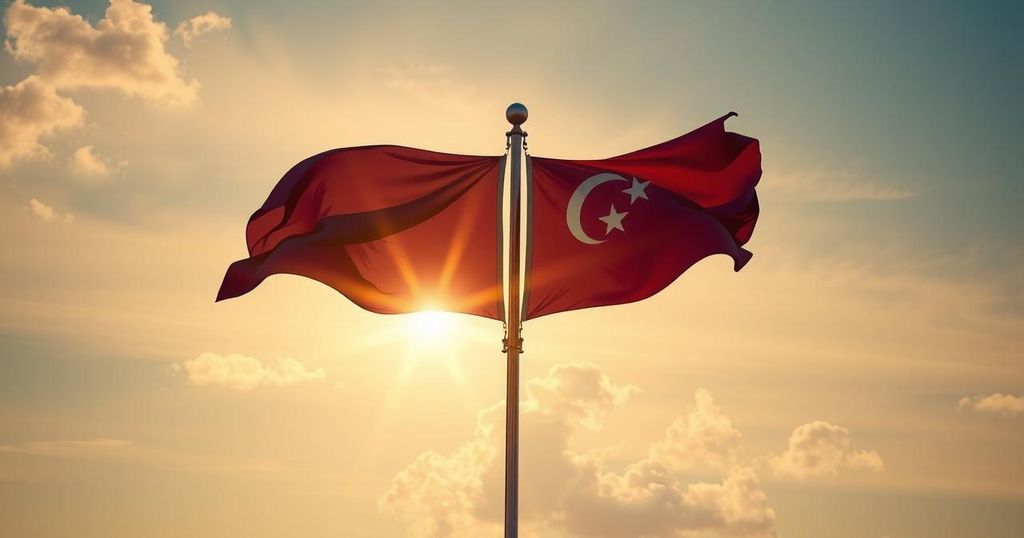Six Americans Freed from Venezuela After Meeting Between Trump Envoy and Maduro

Six Americans detained in Venezuela are being repatriated following a meeting between U.S. envoy Richard Grenell and President Nicolás Maduro, despite U.S. non-recognition of Maduro’s presidency. The detainees’ identities are not disclosed, but the meeting is seen as a significant diplomatic step amidst ongoing tensions between the two nations. President Trump publicly commended Grenell for securing the release.
On Friday, President Donald Trump announced that six Americans detained in Venezuela would be returning home after a meeting between his special envoy Richard Grenell and Venezuelan President Nicolás Maduro. This unprecedented interaction occurred despite the U.S. not recognizing Maduro’s presidency, as he is accused of election fraud. Although the specific identities of the released detainees remain undisclosed, Grenell shared a photograph of them on their flight home, thanking Trump and his staff for their efforts.
In a post, Trump expressed gratitude towards Grenell, stating that they were bringing the hostages home, and shared that the released individuals communicated their thanks to him following their release. The photo showed four of the Americans in prison attire, indicative of their prior detention conditions. Grenell also noted that the group had successfully begun their return to the United States.
Maduro’s leadership is contested both internally and internationally, with numerous nations, including the U.S., rejecting his legitimacy due to alleged electoral misconduct. The situation has led to sanctions against Maduro’s regime and a lack of diplomatic representation by the U.S. in Venezuela. Further complicating relations, the U.S. seized one of Maduro’s airplanes in September and has faced challenges in deporting Venezuelan nationals from America.
During Grenell’s visit, discussions focused on potential agreements related to migrant deportations, but Maduro has previously resisted accepting Venezuelan citizens from the U.S. President Trump has expressed strong opposition to Maduro, characterizing his treatment of Venezuelans as particularly harmful. Trump indicated a desire to engage with Venezuela constructively, despite the complexities of the relationship.
Following the Grenell-Maduro meeting, Maduro suggested that some initial agreements were made, expressing hope for continued collaboration for mutual benefit. Maduro mentioned looking forward to what was termed as ‘new deals’ aimed at improving both countries’ relations. Additionally, migration and sanctions were key topics during their discussions, highlighting ongoing issues affecting both nations.
Venezuela has been facing severe economic and political crises under Maduro since 2013, resulting in mass emigration due to hyperinflation and widespread instability. The U.S. State Department continues to warn against travel to Venezuela due to risks of wrongful detentions concerning U.S. nationals. Notably, nine Americans were released in 2022 and six in December 2023, further indicating ongoing tensions involving American detainees in Venezuela.
The release of six Americans from Venezuela follows a significant meeting between Richard Grenell, Trump’s envoy, and President Maduro. The meeting is notable amidst the strained relations between the U.S. and Venezuela due to allegations of electoral fraud and human rights abuses by Maduro’s government. The U.S. does not recognize Maduro’s presidency and has implemented sanctions against his administration, complicating diplomatic interactions. Furthermore, the context of this meeting also includes the broader issue of Venezuelan nationals facing deportation from the U.S., amidst ongoing humanitarian and political crises in Venezuela.
The return of six Americans from Venezuela underscores the complex diplomatic ties between the U.S. and Maduro’s regime. Not only does it reveal the contentious negotiation landscape surrounding U.S. citizens detained abroad, but it also highlights the challenges of U.S. foreign policy in dealing with a government it does not officially recognize. This event illustrates the broader implications of diplomatic engagement and humanitarian considerations amidst ongoing political unrest in Venezuela.
Original Source: edition.cnn.com







